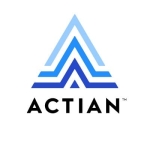Nowadays, we migrate midsize EBS environments (EBS 11i, 12.1 and 12.2) to these machines. We use the machine as a consolidation environment and we also see a performance increase in the database layer.
Customers with limited licenses prefer this machine, as it has capacity-on-demand features which are completely aligned with Oracle licensing policies.
It is an easy-to-deploy database environment, which does not need much maintenance work. A DBA with knowledge of Oracle technologies, such as ASM and database, can manage it.
The system resources of this machine are quite enough for running midsize Oracle databases but, if there is a need, customers can expand their disk and memory resources.
This machine is also used as a standby database environment, especially for customers who have ODA HA or Exadata in their primary sites, and want to have an affordable engineered system for their standby sites.
Oracle ODA is a fixed server appliance. It would be improved if it were an engineered system with scale-out capabilities.
Virtualization features could also be improved. A web-based GUI would be a good start.
Also VM-specific features, which provide VM-level fault tolerancy, could be added to this product. (This improvement would depends on the scale-out capabilities).
I have used ODA X3, X4 and X5 models for three years. This ODA X6-2M is a new ODA model and I have used it the last six months.
No issues, but there is room for improvement here. Currently, there is no scale-out option for any of the models in ODA family.
Quite good. When you buy this machine it is registered with Oracle. Any service request is created using this registration. SR creation and updates are fast.
Conventional systems. Most of the time, the reasons for switching are the optimal price and the promising features.
Straightforward. The whole environment is built in one hour by following the Oracle documentation and using the related utilities.
Get benefit from the capacity-on-demand features. License your cores according to your licenses.
Standard HP servers and other members of the ODA family (such as ODA X6-2S, L and HA).
To others looking into this product I would recommend they take a look at ODA X7, which has been released.
ODA X7 delivers more system resources and it also delivers Standard Edition Oracle Database support for the HA (High Availability) model.













